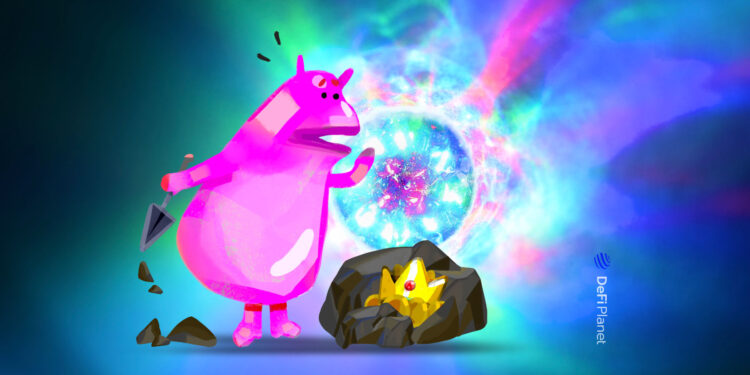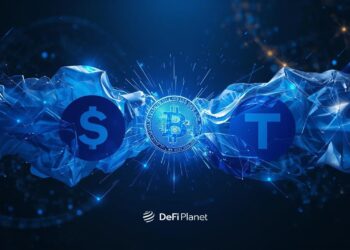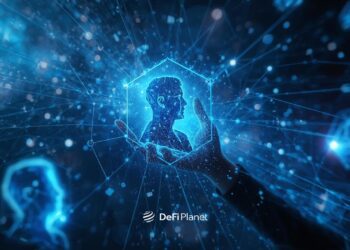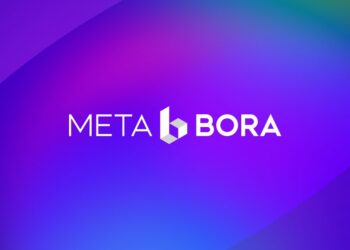Blockchain technology was not designed to function in isolation from the larger economy. While cryptocurrencies have disrupted traditional finance, supply chain logistics, and several other industries in many ways, the potential use cases for blockchain would be severely limited if it can’t interact with the outside world. That’s where blockchain oracles come into play.
Blockchain oracles are created to solve the challenge of incorporating off-chain data into a blockchain without compromising its decentralization. These advanced services are a key part of bringing reliable off-chain data into Web3, and many of the recent developments in decentralized finance (DeFi) would not have been possible without them.
There are numerous blockchain oracles in the market, and the key to picking the right blockchain oracle for your project is understanding how the technology works.
This article comprehensively explains what blockchain oracles are, discusses the oracle problem, and highlights the top decentralized oracle solutions available in 2023.
What are Blockchain Oracles?
First and foremost, let’s define what a blockchain oracle is. In the context of blockchain technology, an oracle is a third-party source of information that can be accessed by smart contracts.
Smart contracts execute automatically based on predefined conditions, and oracles play a critical role in providing the data these contracts rely on to perform their functions. Without an oracle, a smart contract is effectively blind, unable to execute its predetermined actions.
Think of a blockchain oracle as a bridge between the crypto and non-crypto worlds that transmits relevant data between smart contracts and off-chain sources.
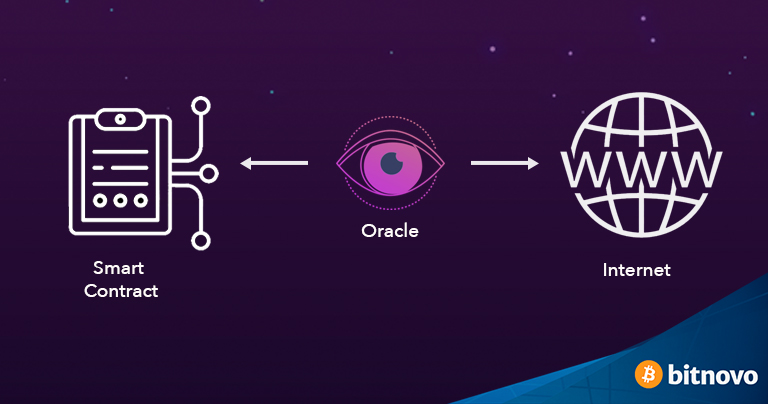
The term “off-chain” refers to data that is not stored on a blockchain network. Data on a centralized cloud server like Microsoft’s Azure is off-chain data. On the other hand, “on-chain” refers to data and computation on a native blockchain. For instance, the transaction history on the Bitcoin blockchain is “on-chain data.”
Blockchains are closed systems that manage on-chain activity. Oracles bridge the gap that exists between on-chain and off-chain data. Without oracles, blockchains would be unable to “communicate” with the outside world.
Blockchain oracles can also be described as middleware or Web3 APIs. They are automated systems that transfer data from non-Web3 data feeds to a blockchain. Blockchain developers need oracle systems to add data from outside the blockchain to their decentralized applications (i.e., dApps). This underscores how important oracles are to blockchains.
Why are Oracles Important to Blockchains and Crypto?
Oracles connect crypto to the outside world, thereby opening up lots of new applications for blockchain technology. They make it possible for smart contracts to be used to handle a wide range of transactions in the real world. Here are the main benefits of oracles to blockchains and the crypto space as a whole:
Reliability
Oracles provide accurate and reliable data to smart contracts. Since smart contracts execute automatically, they depend on the data provided by oracles to make decisions. Reliable oracles ensure that smart contracts work as intended, fostering trust among all transaction parties.
Security
Oracles enhance blockchain security by validating the accuracy of the data that external sources provide before it is added to the blockchain. This prevents malicious actors from tampering with data and compromising blockchain security.
Scalability
Oracles reduce the amount of data that needs to be stored within the blockchain, improving scalability. By storing data externally, blockchains maintain efficiency and speed without requiring more storage space, resulting in faster transactions and better overall performance.
Interoperability
Oracles facilitate communication between different blockchain networks and external systems. They enable seamless information sharing and interaction among various blockchain networks.
Innovation
Oracles support creative uses of blockchain technology by granting access to real-world data. They enable the development of decentralized applications in diverse areas, including banking, healthcare, and supply chain management.
The Oracle Problem
Smart contracts are crucial for a robust blockchain ecosystem and rely on oracles to make decisions. However, this system has a major issue: if the oracle is compromised, the smart contract can also be compromised.
Unlike the main blockchain consensus, public blockchains’ security mechanisms do not cover oracles. This creates a trust issue between the trustless execution of smart contracts and third-party oracles.
Third-party attacks are a significant threat to this system, where malicious actors gain access to data flow between oracles and contracts and manipulate them.
The Solution: Decentralized Oracles
Decentralized oracle solutions aim to solve the “oracle problem” by providing smart contracts with safe and dependable data feeds.
Instead of relying on a single source of truth, decentralized oracles improve data reliability by consulting multiple oracles to confirm data accuracy and validity. This decentralized approach is often referred to as consensus oracles.
Many blockchain projects provide decentralized oracle services to other blockchains. These services are particularly useful in prediction markets, where social consensus can verify the accuracy of a specific outcome.
While decentralized oracles aim for trustlessness, it’s important to note that, like trustless blockchain networks, they do not entirely eliminate trust. Instead, they distribute trust among multiple participants.
Top Decentralized Oracle Solutions
Chainlink

Based on data from CoinGecko, Chainlink is currently the largest blockchain oracle in the industry and the only one with a market capitalization exceeding one billion dollars.
Chainlink provides off-chain data to various blockchain ecosystems, including Layer 1s, Layer 2s, sidechains, and various dApps that are based on smart contracts.
Hundreds of blockchain platforms and software firms, such as the Associated Press, Aave, Avalanche, Ampleforth, Swisscom, Compound, and T-Systems, use Chainlink’s on-chain services.
The two most popular features of Chainlink are:
- Chainlink Verified Random Function (VRF): This protocol produces random values after verifying the cryptographic proof of the values. It is primarily used by smart contracts that run dApps with unpredictable outcomes.
- Chainlink Automation: This tool was formerly called Chainlink Keepers and helps smart contracts with tasks like harvesting, rebasing, liquidating, and calculating the costs and risks of accessing off-chain markets.
Gora

Gora is a unique decentralized oracle network that operates on the Algorand blockchain, utilizing a Pure Proof-of-Stake (PPoS) consensus mechanism to ensure the same level of speed and security as its underlying blockchain.
It acts as an abstraction layer, facilitating secure communication between various decentralized node networks as independent sources. This enables smart contracts, which are intricate digital agreements, to operate smoothly.
The primary advantage of Gora is its data feeds, which enable developers to swiftly create distinctive decentralized applications. With access to readily available data, developers can produce proof of concepts in weeks rather than months.
Band Protocol

Band Protocol is a cross-chain data oracle platform that facilitates the connection of real-world data and APIs to smart contracts. Its highly adaptable oracle design allows developers to work with any data type. Additionally, it provides a mechanism for creating custom oracles by using WebAssembly to connect traditional web APIs to smart contracts.
The platform consists of BandChain, which is compatible with all blockchain development frameworks and smart contract platforms.
BandChain is designed to collect data from external sources, aggregate it, and present it in a user-friendly format that can be shared across multiple blockchains. This format is verified cryptographically, ensuring data security and authenticity.
SupraOracles

SupraOracles is building the most efficient blockchain infrastructure for global value exchange by providing cross-chain interoperability, cutting-edge cryptography, and 3-5 second finality.
SupraOracles prides itself on being decentralized, meaning nodes pull data from various sources and incorporate incentives for nodes. Additionally, it boasts:
- scalability, with singular nodes existing in multiple Distributed Key Generation configurations in parallel,
- organization in randomized network topologies,
- a secure core enhanced by highly effective cryptographic primitives,
- swift finality, and
- Compatibility with a wide range of blockchains, including Solana, Ethereum, Polygon, and others.
Witnet

Witnet aims to provide smart contracts with a decentralized and trustless means to access any online data source. Its approach is similar to that of its competitors, who also use tokens (WIT) to compensate oracles for performing data retrieval tasks.
The key aspect of Witnet’s solution is its reputation system. This system incentivizes oracles, referred to as “witnesses,” to provide accurate answers to data requests and discourages them from providing incorrect answers by reducing their reputation scores.
The Witnet protocol randomly selects witnesses based on their reputation scores to fulfill data requests through mining. Witnesses with higher reputation scores are more likely to be chosen for additional tasks, resulting in additional token compensation upon completion.
The XYO Network

The XYO Network is a decentralized Oracle network that uses its large distributed ledger of data through a process called “geomining.” This method generates on-chain assets using real-world location data sharing.
XYO is designed to serve as a simple, trustless link between real-world events and blockchain-based applications.
The XYO Network enables users to develop smart contracts capable of interacting with off-chain data, with a particular emphasis on locational data. This cutting-edge technology enables trustless transactions between two parties.
For example, online retailers can utilize smart contracts to receive payment only upon the delivery of a product.
WINkLink

WINkLink is a TRON-based blockchain oracle solution. This decentralized oracle enables users to develop customized network oracles for searching, querying, and providing real-world data to smart contracts. This data can range from NFTs, stocks, and cryptocurrency to sports, weather, and real estate, among other things.
WINkLink has a modular design that allows for future optimization and updates. It comprises two major parts: on-chain and off-chain components.
The on-chain component consists of the WINkLink smart contract (WINkLink-SC) that interacts with requesting contracts and the aggregator contract. The aggregator contract collects results from all specified nodes, combines them, and sends the final result to the requesting contract.
The off-chain component is the oracle node that collects off-chain data separately and calculates a single result in the aggregator contract. The open-source core implementation runs the nodes, which handle standard blockchain interactions, scheduling, and connections to common external resources.
In Conclusion
- The progress and advancement of the blockchain industry significantly rely on decentralized oracle solutions. These solutions serve as a critical bridge connecting the blockchain and the actual world, enabling smart contracts to access external data and execute their functions efficiently.
- As the blockchain industry keeps evolving, we can expect to witness an expanding range of use cases for decentralized oracle solutions. With numerous projects venturing into the space and new innovations emerging, the future of decentralized oracle solutions appears promising.
DISCLAIMER: This piece is intended solely for informational purposes and should not be considered trading or investment advice. Nothing herein should be construed as financial, legal, or tax advice. Trading or investing in cryptocurrencies carries a considerable risk of financial loss. Always conduct due diligence.
If you would like to read more articles like this, visit DeFi Planet and follow us on Twitter, LinkedIn, Facebook, and Instagram, and CoinMarketCap Community.
“Take control of your crypto portfolio with MARKETS PRO, DeFi Planet’s suite of analytics tools.”

